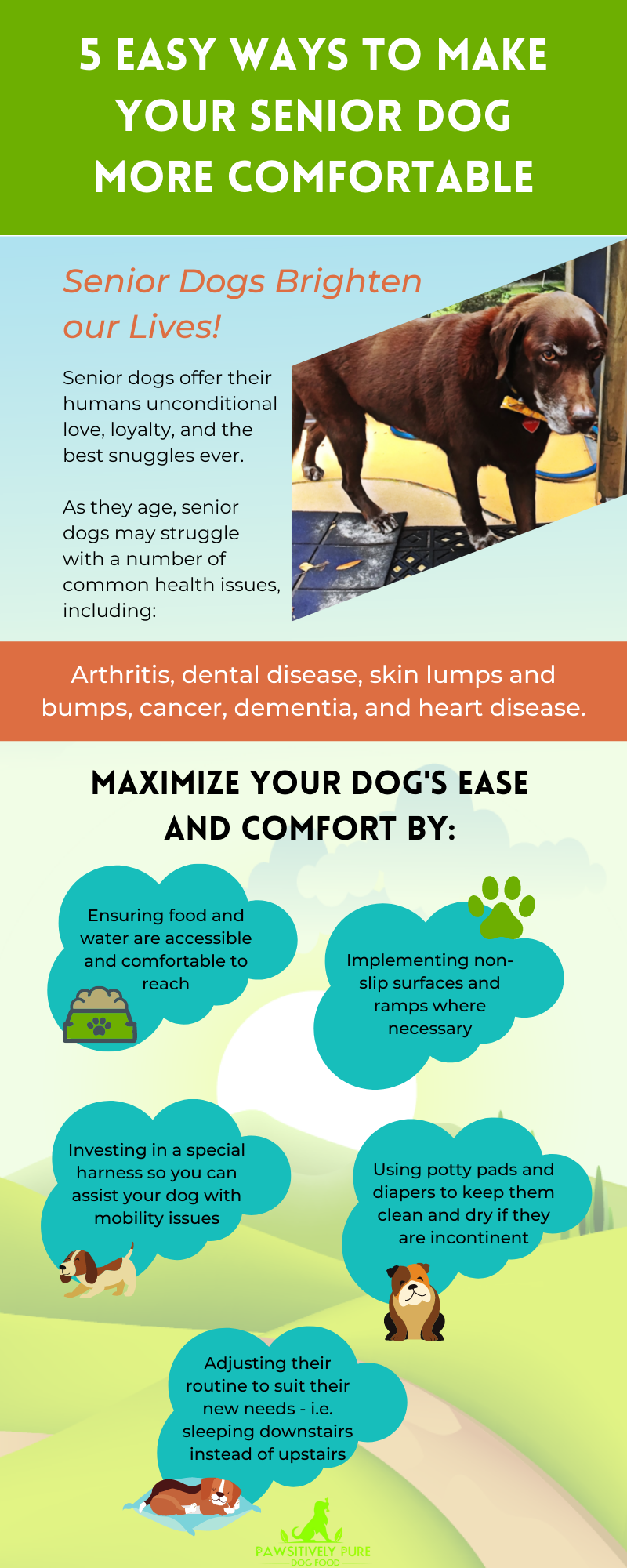The Bernard Rodriguez Journal
Exploring the latest trends and stories in news and lifestyle.
Gray Muzzle Chronicles: Tales of Senior Pet Care Adventures
Discover heartwarming stories and essential tips for caring for senior pets in Gray Muzzle Chronicles. Join the adventure today!
Top 5 Essential Tips for Caring for Your Senior Dog
Caring for a senior dog requires special attention to their unique needs. As dogs age, they may experience health issues and require different care than younger pets. Tip 1: Regular veterinary check-ups are crucial. Schedule visits at least twice a year to monitor health changes and catch any potential problems early. Tip 2: Maintain a balanced diet. Senior dogs often need a diet lower in calories but higher in fiber and specific nutrients to support their aging bodies. Always consult your vet for suitable food choices that cater to your dog's specific health requirements.
In addition to nutrition, Tip 3: Keep them physically active. Regular, low-impact exercise helps maintain muscle mass and joints, which is vital for mobility. Short walks or gentle playtime sessions are ideal. Tip 4: Create a comfortable living space for your senior dog. Ensure they have a warm bed, easy access to food and water, and a safe environment free of hazards. Finally, Tip 5: Provide mental stimulation. Engaging toys and gentle training exercises can help keep their minds sharp and prevent boredom. Remember, the love and attention you give will go a long way in ensuring their golden years are happy and healthy.

Navigating Common Health Issues in Aging Pets
As our beloved pets age, they often face a variety of common health issues that require our attention and care. Arthritis, for instance, is a prevalent condition among senior dogs and cats, leading to pain and stiffness in their joints. This can hinder their mobility and affect their overall quality of life. Regular vet check-ups are crucial for early detection and management of such conditions, ensuring our pets remain comfortable and active for as long as possible.
Another significant health issue in aging pets is cognitive dysfunction syndrome (CDS), which is akin to dementia in humans. Symptoms may include disorientation, disrupted sleep patterns, and changes in behavior. To support pets with CDS, pet owners can implement enrichment activities like puzzle toys and regular exercise, which help stimulate their minds. Additionally, consulting with a veterinarian about dietary changes or supplements might aid in alleviating some symptoms associated with aging.
How to Create a Comfortable Home Environment for Your Senior Cat
Creating a comfortable home environment for your senior cat is crucial to their well-being and happiness. Begin by ensuring they have a cozy sleeping area that is away from drafts and noise. Use soft bedding that provides support for their joints. Additionally, consider a warm spot near a sunny window, as many senior cats enjoy lounging in the sun. If your cat is arthritic or has mobility issues, elevated platforms or ramps can help them navigate their environment.
Feeding your senior cat can also impact their comfort level. Choose nutritionally balanced food tailored for senior cats, as their dietary needs vary from younger cats. Ensure fresh water is always available and opt for shallow dishes to make it easier for them to eat and drink. Finally, keep toys and scratching surfaces within reach, so your cat can stay active and engaged without much effort. By taking these steps, you can create an inviting atmosphere that accommodates the specific needs of your senior feline.